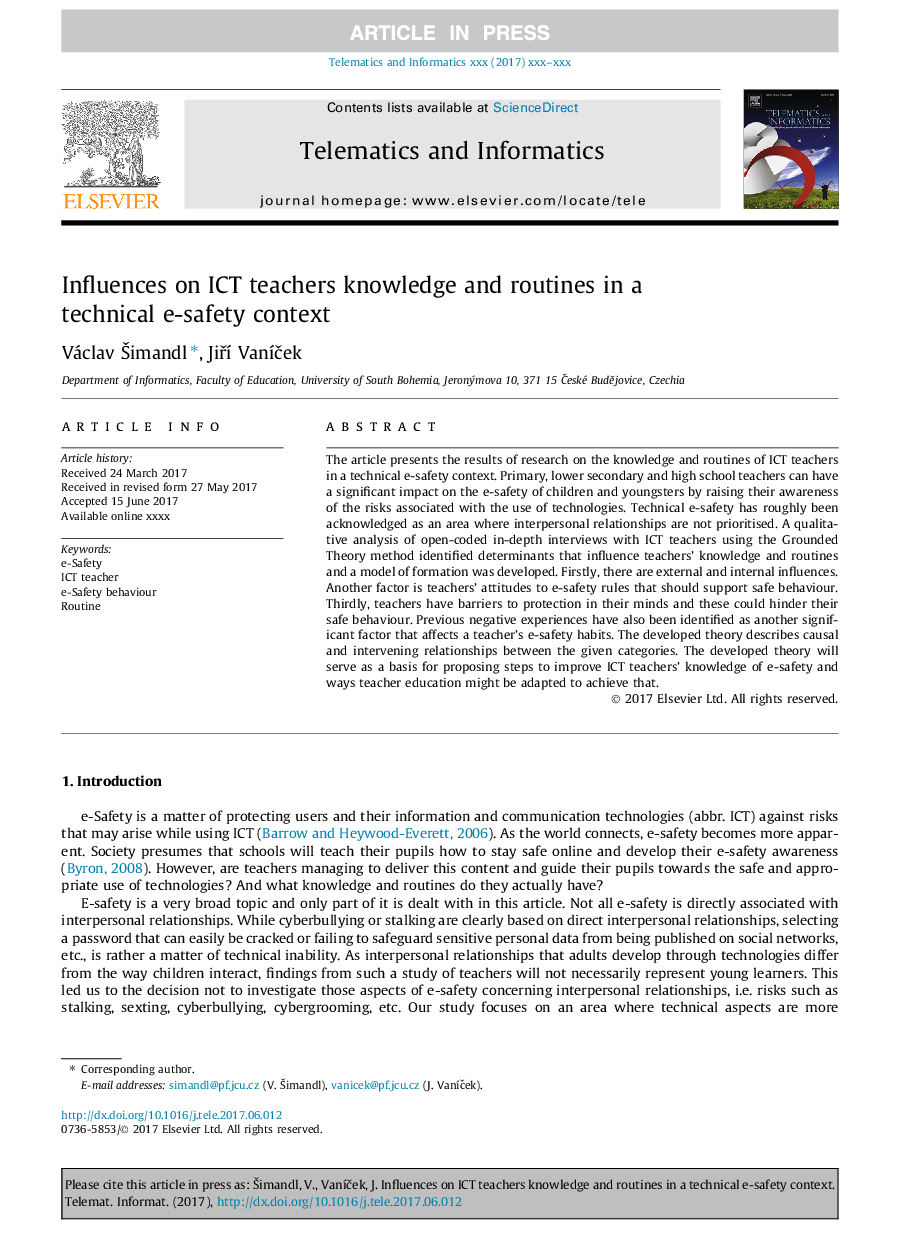| Article ID | Journal | Published Year | Pages | File Type |
|---|---|---|---|---|
| 6889827 | Telematics and Informatics | 2017 | 15 Pages |
Abstract
The article presents the results of research on the knowledge and routines of ICT teachers in a technical e-safety context. Primary, lower secondary and high school teachers can have a significant impact on the e-safety of children and youngsters by raising their awareness of the risks associated with the use of technologies. Technical e-safety has roughly been acknowledged as an area where interpersonal relationships are not prioritised. A qualitative analysis of open-coded in-depth interviews with ICT teachers using the Grounded Theory method identified determinants that influence teachers' knowledge and routines and a model of formation was developed. Firstly, there are external and internal influences. Another factor is teachers' attitudes to e-safety rules that should support safe behaviour. Thirdly, teachers have barriers to protection in their minds and these could hinder their safe behaviour. Previous negative experiences have also been identified as another significant factor that affects a teacher's e-safety habits. The developed theory describes causal and intervening relationships between the given categories. The developed theory will serve as a basis for proposing steps to improve ICT teachers' knowledge of e-safety and ways teacher education might be adapted to achieve that.
Keywords
Related Topics
Physical Sciences and Engineering
Computer Science
Computer Networks and Communications
Authors
Václav Å imandl, JiÅÃ VanÃÄek,
